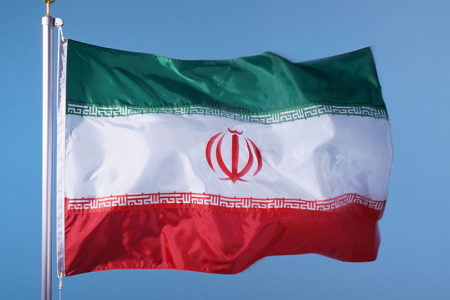God is Jealous Conclusion
God’s Sixth Purpose for Israel
The previous article observed five purposes God has for the nation of Israel in light of the Gentile nations’ historic apostasy and false worship. Now we will examine one more, along with the significance these purposes have for His name Jealous.
Spiritual Leadership
Israel is to be God’s spiritual leader of the world. When Israel was at Mount Sinai, God told Moses the exact words to speak to the children of Israel (Ex. 19:1–6). Included was the statement, “You shall be to Me a kingdom of priests” (v. 6). Gottlob Schrenk wrote, “Here the reference is to Israel’s relation to the nations.”1 In addition, he said, “The expression ‘kingdom of priests’ comes from a period in which it can mean that all members of the people of Israel should be priests, i.e., a kingdom consisting of priests.”2 God ordained Israel to have a priestly function toward the nations. He purposed it to be His spiritual leader of the world.
On the personal level, a priest “belongs and is consecrated to deity.”3 On the national level, God designed Israel to belong and be set apart, or dedicated, exclusively to Him.
A priest functions foremost as mediator between the deity to which he belongs and a body of people.4 God intended Israel to mediate between Him and the Gentile world.
The mediator’s role involved many priestly duties.5 He was to dispense “oracles” (to be a channel through which the deity would communicate divinely revealed messages to people).6 He was to teach people the significance for them of the divinely revealed messages.7 He was to guard what was sacred to the deity.8 And he was to reconcile disobedient people to their offended deity.9
Israel was to perform these same priestly duties as God’s mediator between Him and the Gentile nations.
First, Israel was to be the channel through which God communicated His divinely revealed messages of truth to mankind. “What advantage then has the Jew, or what is the profit of circumcision? Much in every way!Chiefly because to them were committed the oracles of God” (Rom. 3:1–2). God gave the Scriptures to humanity through Jewish prophets and apostles.
Second, Israel was to teach Gentiles the significance of God’s divinely revealed messages (2:17–24; 1 Tim. 2:7; 2 Tim. 1:11).
Third, Israel was to guard God’s Holy Scriptures, protecting them from destruction and perversion.
Fourth, Israel was to bring reconciliation between the rebellious Gentiles and God. For that to happen two things were necessary: (1) Israel was to represent God accurately to the Gentiles. Through its conduct, it was to impress the Gentiles with the fact that Yahweh, the God who supernaturally brought the Israelites out of Egypt, is the only true God. (2) Israel was to lead the Gentiles into a right relationship with Him.
To fulfill its assignment as God’s spiritual leader of the world, it was necessary for Israel to keep itself “holy,” divided from the Gentiles by being different from them. They were not to worship the nations’ false, man–made gods or follow their perverted lifestyles. “Constant holiness and purity are important requirements for the priesthood.”10
Consequently, when God appointed Israel to be a kingdom of priests, He also declared they were to be a “holy nation” (Ex. 19:6). So He placed the nation under the Law, including the Ten Commandments and hundreds of other regulations (Ex. 20). God never gave the Law to the Gentiles (Rom. 2:14–15). He intended it exclusively for Israel because of His purpose for that nation.
The Law was not a way of salvation. Galatians 2:16 states, “a man is not justified by the works of the law…for by the works of the law no flesh shall be justified.” Instead, the Law was “the ministry of death” and “condemnation” (2 Cor. 3:7, 9). It required the death penalty for rebels who worshiped false gods and followed the perverted lifestyles of the Gentiles. The Law was God’s way of removing rebels quickly from Israel in order to maintain the nation’s holiness and purity required for the priesthood.
Significance of the Name Jealous
When Israel was at Mount Sinai, God said,
You shall have no other gods before Me. You shall not make for yourself a carved image––any likeness of anything that is in heaven above, or that is in the earth beneath, or that is in the water under the earth; you shall not bow down to them nor serve them. For I, the Lᴏʀᴅ your God, am a jealous God (Ex. 20:3–5).
Later He said, “You shall worship no other god, for the Lᴏʀᴅ, whose name is Jealous, is a jealous God” (34:14).
God had one exclusive, personal name: Yahweh. He revealed it in response to Moses’ request for His name (3:13–14). R. Allan Killen wrote that Yahweh “is the most significant name of God found in the OT in that it is the personal proper name Israel had for their God….Strictly speaking, this is the only personal name of God belonging to Him alone.”11
The fact that Yahweh was God’s exclusive, personal name and had overwhelming significance to Him is indicated by His declaration, “This is My name forever, and this is My memorial to all generations” (3:15). That declaration implied the name Yahweh revealed His true nature or essence that always has been and always will be the same forever. Thus Gottfried Quell indicated that a person’s name “embraces his nature….The nature of God is thus compressed in the name of God. The name is both the quintessence of His person and the vehicle of His power.”12
J. A. Motyer claimed that Yahweh is the name “related to the Hebrew verb ‘to be’; and it must be pointed out that while this verb cannot help meaning ‘to exist,’ its characteristic force is ‘to be actually present,’ ‘to be a present reality.’”13 Thus the name Yahweh revealed that the God who has that name always has been and always will exist and be present reality.
Gottfried Quell concurred: “We have in Yahweh a concrete manifestation of divine reality.”14 Yahweh is “the Creator and Ruler of the world.”15 Yahweh is “the One apart from whom none other has the property of God.”16 Yahweh is the “one God who is truly God in the full sense,” and that concept was “the essential difference between the faith of the OT community of God and the beliefs of the Gentiles, who are marked by the fact that they make gods, fashioning in wood and stone….These gods cannot help or avail. They are a silent mystery. They cannot release any impulse of will. They are inoperative, therefore they are to be regarded as nought.”17
Since Yahweh was God’s only exclusive, personal name, and since it revealed His true nature or essence, then His statement that His “name is Jealous” seems to indicate that His name Yahweh is Jealous. To understand the association of Yahweh with Jealous, several things must be considered.
First, the name Yahweh is closely connected to God’s holiness. Since it indicates that the God of Israel is the only God who exists, it signifies that He is holy (divided from all other gods, unique, one of a kind). Thus God says, “‘To whom then will you liken Me, or to whom shall I be equal?’ says the Holy One” (Isa. 40:25). Since Yahweh is God’s name exclusively, the name itself is holy (divided from all other names, unique, one of a kind). Thus God refers to His “holy name” (Ezek. 36:20–21).
Second, Joshua warned the Israelites of a significant connection between His jealousy and holiness (Josh. 24:19). He warned that forsaking the exclusive worship of Yahweh by serving other gods would stir up God’s jealousy because they would be denying His holiness––the fact that He is the only God who exists and deserves their worship (vv. 14–25). E. Reuter pointed out, “Here for the first time jealousy and holiness together are understood as attributes of God’s nature, with the result being a kind of jealous holiness.”18
Third, the fact that both the name Yahweh and God’s jealousy have connections to His holiness sheds light on what God meant when He said His name “is Jealous.” The people of Israel had covenanted to worship Yahweh exclusively because His name Yahweh signified that He is the “Holy One,” the only true God. Their worship of false gods would ignite the jealousy element of the name Yahweh because it would strike at the very holy essence of God signified by that name and thus violate His purposes for Israel: (1) to have a permanent, unique relationship with Him, not with false gods; (2) to be a holy nation, different from those that worshiped false gods; (3) to be a witness of His being the only true God; (4) to serve Him, not other gods; (5) to be an instrument of His glory, impressing the world with who He is; and (6) to be His spiritual leader of the world, leading the Gentile nations from false gods to Him.
ENDNOTES
- Gottlob Schrenk, “ierateuma,” Theological Dictionary of the New Testament (hereafter cited as TDNT), ed. Gerhard Kittel, trans./ed. Geoffrey W. Bromiley, translated from Theologisches Worterbuch zum Neuen Testament (Grand Rapids, MI:Eerdmans, 1965), 3:249.
- Ibid.
- Ibid., “ieros,” 223.
- Dommershausen, “kohen,” Theological Dictionary of the Old Testament (hereafter cited as TDOT), ed. G. Johannes Botterweck, Helmer Ringgren, and Heinz-Josef Fabry, trans. David E. Green, translated from Theologisches Worterbuch zum Alten Testament (Grand Rapids, MI: Eerdmans, 1995), 7:70.
- Ibid.
- Ibid., 67.
- Ibid.
- Ibid., 66–67.
- Ibid., 69–70.
- Ibid., 70.
- Allan Killen, “Yahweh,” Wycliffe Bible Encyclopedia, ed. Charles F. Pfeiffer, Howard F. Vos, John Rea (Chicago: Moody Press, 1975), 1:694.
- Gottfried Quell, “kurios,” TDNT, 1070.
- A. Motyer, “Jehovah,” The New International Dictionary of the Bible, Pictorial Edition, ed. J. D. Douglas and Merrill C. Tenney (Grand Rapids, MI: Zondervan, 1987), 502.
- Gottfried Quell, “theos,” TDNT, 3:87.
- Ibid., 80.
- Ibid., 82.
- Ibid., 87.
- Reuter, “ganna,” TDOT, ed. G. Johannes Botterweck, Helmer Ringgren, and Heinz-Josef Fabry, trans. David E. Green, translated from Theologisches Worterbuch zum Alten Testament (Grand Rapids MI: Eerdmans, 2004), 13:55.







